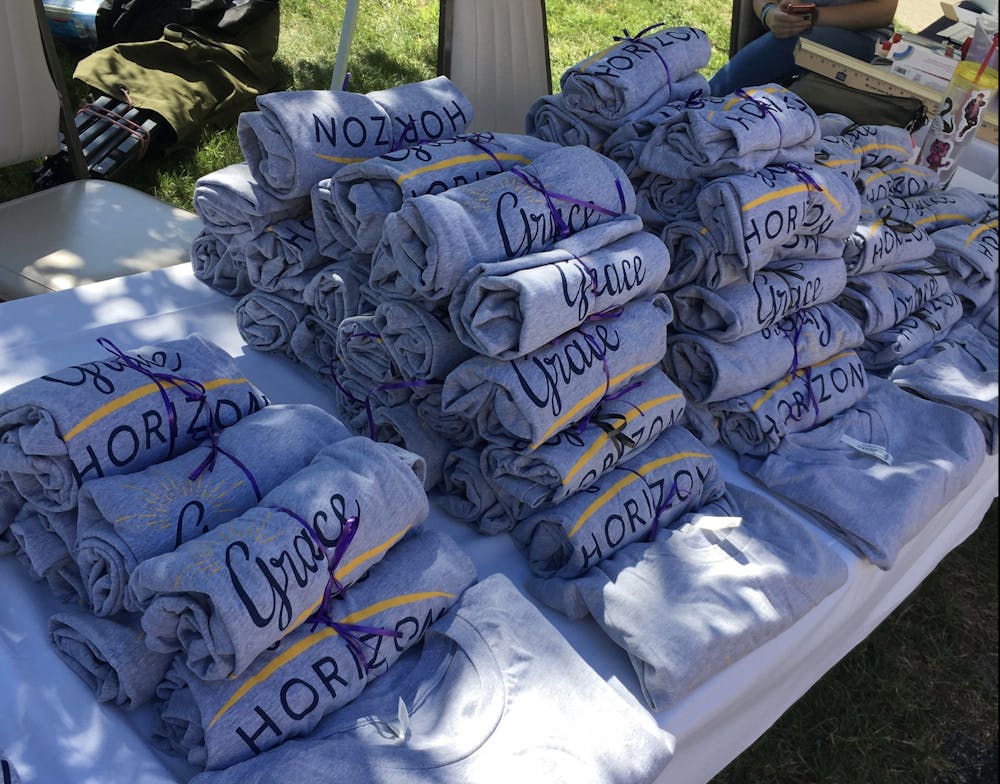Editor’s Note: as a Trigger Warning, this article contains information about sex trafficking
Sex trafficking: a hard truth and something that actually happens not only in the state of Indiana, but all over the world. The Child Welfare Act describes sex trafficking as “criminal activity whereby one or more persons are subjected to engaged in commercial sexual activity through the use of force, fraud or coercion.”
As of 2020, from the National Human Trafficking Hotline website, there have been approximately 140 cases reported and 514 people have contacted the hotline in general of suspicion and attempts. The numbers have drastically increased from 2016. In 2016, there were only 85 cases reported and 317 people contacted the hotline.
This is why organizations like Grace Horizons exist.
Grace Horizon is an organization located in Anderson, Indiana. It is more so a community of survivors– people who have seen and been through things the naked eye can’t comprehend.
According to the Grace Horizon website, their mission is to help people who have been through violence, exploitation, sex trafficking and sexual exploitation. They use their trauma as a way to bring awareness and to bring some light in situations that should never happen to people in general.
They have a motto they follow when helping people through their journey, healing and recovery which they like to call the “Three R’s:” relationships, resource support and recovery.
Sarah Helber, children’s coordinator and second generation coach for Grace Horizon, said, “Those are the three things that are addressed and are needed most in recovery.”
On the Grace Horizon website, they talk about how people in this organization allow themselves to create connections with other people and interlock with their emotions and trauma. It allows them to have a safe place to talk to someone about their fears and the things they’ve experienced.
“Everything starts with relationships,” Helber said. “We want them to reach their goals in life, and recovery goals as well. We provide them with different things, whether that is food or getting their diploma, we work with different organizations, so we are able to make this happen.”
This organization has core values including boundaries/self-care, generosity, stability and healthy spirituality, that allow them to heal and to continue to grow and help heal their wounds. They use each of these things to help the person involved understand what they have been through, how to take care of themselves and how to become someone who has grown from the traumatic experiences.
As a part of a community like this, those involved allow people to feel and get counseling, coaching and any kind of help they may need. Grace Horizon has access for survivors to feel comfortable and taken care of. “We have used counseling, group therapy [and] trauma yoga,” Helber said. “We try to focus on the whole person and not just the challenges they have faced and been through.”
Healing is the main priority in this community. Those at Grace Horizon want those involved to know that healing a wound that was not caused by themselves is hard but not impossible, showing that everyone is different and handles grief and healing in different ways.
“The road to healing is not linear, and while we utilize many good steps and resources on that path, we also recognize that each person’s journey is unique,” according to the Grace Horizon website.
Recovery, and making it known that healing is filled with so many loops and holes that it will never be easy, are additionally important to those at Grace Horizon.

Kennedy Shoemaker, HM3 - behavioral health technician for the U.S. Navy, has been able to work with others about their different mental health issues and has experience in working alongside their recovery.
Shoemaker is a Corpsman Petty officer with a Third Rankings as she works alongside the behavioral health technician for the U.S. Navy.
“What people really need more than advice or answers is the ability to be acknowledged and understood when they are announcing their own insecurities and/or trauma,” Shoemaker said.
Shoemaker talked about the different ways to help people who have been through trauma and what those can do to help others.
“I feel it is incredibly helpful – in lack of better words – to let people help themselves rather than tell them what to do with their lives,” Shoemaker said. “Ask them what they think they should do, listen and let them think.”
Shoemaker believes people need to feel heard and seen before being given or accepting advice from others. She said they want a place to vent and a place they feel heard as well. Understanding trauma and not taking blame for symptoms of trauma are things she said she encourages people she works with in the military to work through.
“Trauma comes at the hands of others. It isn’t ever really self induced or inflicted,” she said. “Not every method will work for everyone, so it’s kind of like speed dating recovery for example. Breathing exercises might work for one person but not for another.”
Ball State offers free counseling and resources that allow people to seek the help they desire and need. Ball State students can use the Counseling Center to help with anxiety, depression and career exploration.
Ball State has a program called Outreach, which states on their website that their “mission is to assist students in reaching their personal and educational goals and removing barriers to learning. Part of our service mission is a strong outreach/consultation component oriented towards prevention, student development and wellness.”
Ball State, like Grace Horizons, has resources and people wanting to help.
Brittany Johnson, Ball State athletic trainer, has worked alongside many teams at different universities in her career.
Johnson explained how trauma can lead to many different things that go throughout the body and mind.
“[Sometimes] with depression, you can’t motivate yourself to do things that a normal functioning human would do. For example, brushing your teeth, bathing, eating properly, all of these can lead to different issues with your body as well. So not only can trauma affect you directly, but it can also affect you indirectly,” Johnson said.
Johnson said the human body is not only affected by the traumas and impacts it goes through but also what a person is able to do to help themselves in times of need. She thinks it is important to care for yourself and do things for yourself.
“Even after a crazy, busy day, you are still putting in that time for yourself to allow yourself to mentally and physically slow down,” Johnson said.
If you, or anyone you know, needs assistance in mental health or has been put in harm's way, contact your nearest hospital or the Ball State University Health Center at (765) 285-8431 and Grace Horizon at (765) 374-0223.
Contact Isabella Bonilla with comments via email at isabella.bonilla@bsu.edu





